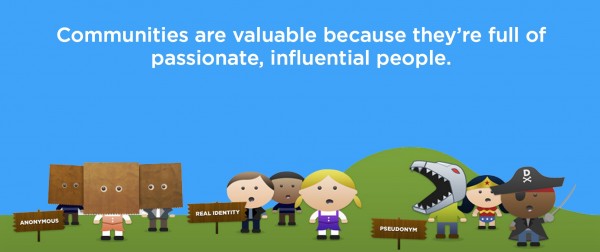While we believe in network effects and the defensibility and leverage that comes from them, we have never subscribed to the popular theory that one single company can leverage network effects to “run the table” on a large market on the Internet and Mobile.
Certainly Google has largely done that in search and yet there are still several smaller players in the search market in the US, there are a number of regional search leaders around the world, and there are search engines, like our portfolio company DuckDuckGo, that compete on the basis of privacy or some other vector that Google chooses not to compete on.
In e-commerce, many think that Amazon is a force that cannot be reckoned with. And yet there are many successful e-commerce companies that have been built over the years. And there are new e-commerce companies being started every day.
In social networking, many believed that Facebook would be the only social network that mattered. As far back as 2007, I argued on this blog that we would see many social networks emerge offering different social graphs, user experiences, and use cases. We successfully invested in some of them, including Twitter and Tumblr.
In the mobile transportation market, which we believe will be a very large global market opportunity, many believe that Uber will run the table. And it certainly looks like they are doing that right now. It reminds me of the juggernaut that Facebook looked like five years ago when everyone thought they had won the social networking market.
But we believe that there will be a number of meaningful companies built in the mobile transportation market, just like there have been a number meaningful companies built in all of the really large markets that have developed on the Internet and mobile.
We have had an investment in one of these meaningful mobile transportation companies, Hailo, for a couple years and they have leveraged the existing taxi cab market to build a very large mobile transportation company operating in some of the largest cities in Europe and the eastern US, where taxi services are well established and work well.
And last summer, we made a second investment in this sector, in Sidecar. At the time of that investment, Sidecar was planning a significant change to their strategy and product to deliver a true marketplace experience to the mobile transportation market. We agreed with the company that we would keep our investment private until they were ready to launch the new product and strategy.
Well today, Sidecar has launched its new product and strategy and with that, we are announcing that USV is an investor in Sidecar. We are very excited about the marketplace model and what it can bring to drivers and riders in the mobile transportation market.
Om Malik wrote a post on GigaOm a few weeks ago that foretold this new strategy, although I don’t believe he knew about it or had been briefed on it. He wrote:
But this efficiency over the human touch is also an opportunity for Uber’s rivals
The human touch means not turning car owners who want to make a bit more money into limousine drivers. The human touch means allowing a driver to choose when and where they drive. The human touch means allowing drivers to market themselves in the app with a picture and a little bit about them and their car. The human touch means allowing the drivers to change their pricing whenever they feel like it.
The human touch means allowing riders to see the drivers in app and choose the one they most want to ride with. The human touch means giving the rider a real fixed price instead of some multiplier that goes up whenever you most need a ride.
When Sunil Paul, Sidecar’s founder and CEO, laid this out for me and my partners last summer, I immediately thought of Etsy vs Amazon. I use Amazon all the time. It’s a great service. I get the lowest price, quick delivery, and confidence. That’s the Uber model. But I also use Etsy all the time. At Etsy, I get something unique and personal. I get to buy directly from the seller. I get to have a conversation with them. I can favorite/follow them and get notified whenever they post new stuff.
Amazon is efficient and Etsy is personal. There is room for both of them to build big businesses in e-commerce. Uber is efficient and Sidecar is personal. And we believe that there is room for both of them to build big businesses in mobile transportation.
If you live in the the Bay Area, Los Angeles, San Diego, Seattle, Chicago, Boston, Washington DC, or Charlotte, you can try out the new Sidecar marketplace experience.Download the app and give it a try. It won’t be for everyone, but I bet there are a lot of people out there who will really enjoy the human touch of Sidecar and use it frequently.








![Reblog this post [with Zemanta]](http://img.zemanta.com/reblog_e.png?x-id=689569e9-9290-430b-ad62-24f3a20219e7)






![Reblog this post [with Zemanta]](http://img.zemanta.com/reblog_e.png?x-id=2d901818-c84f-44c2-9f6a-b4b7fabe24a9)